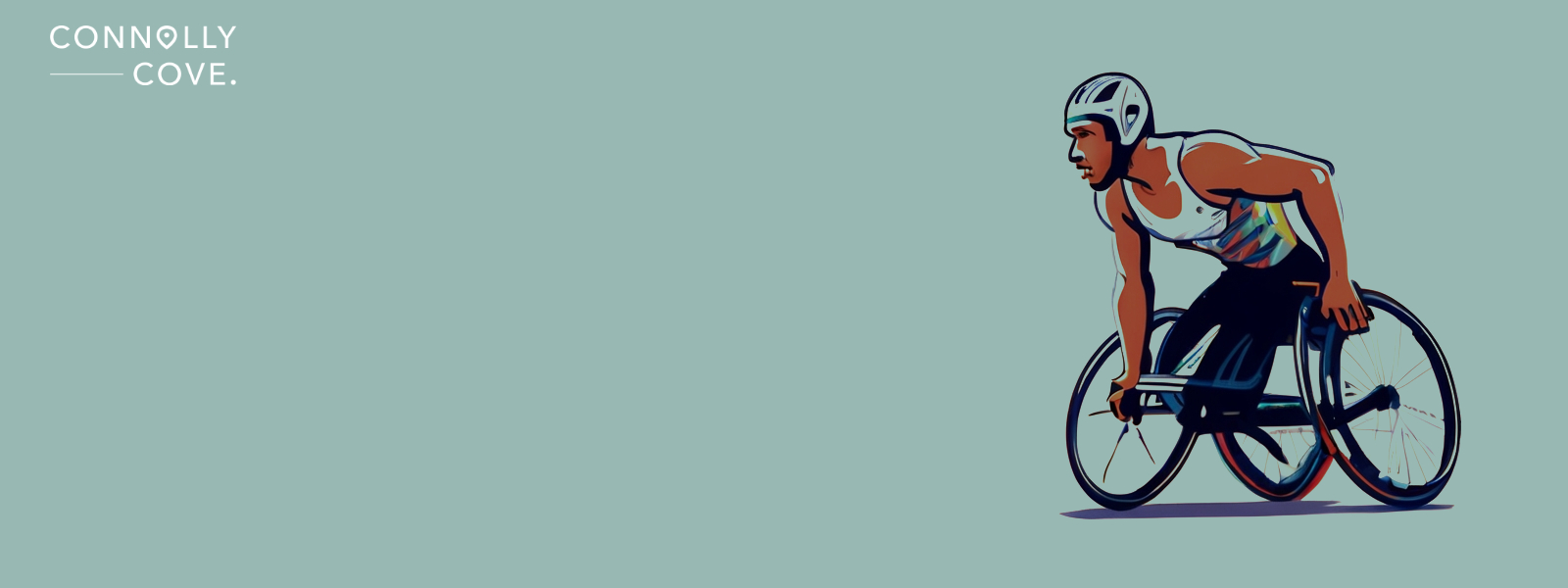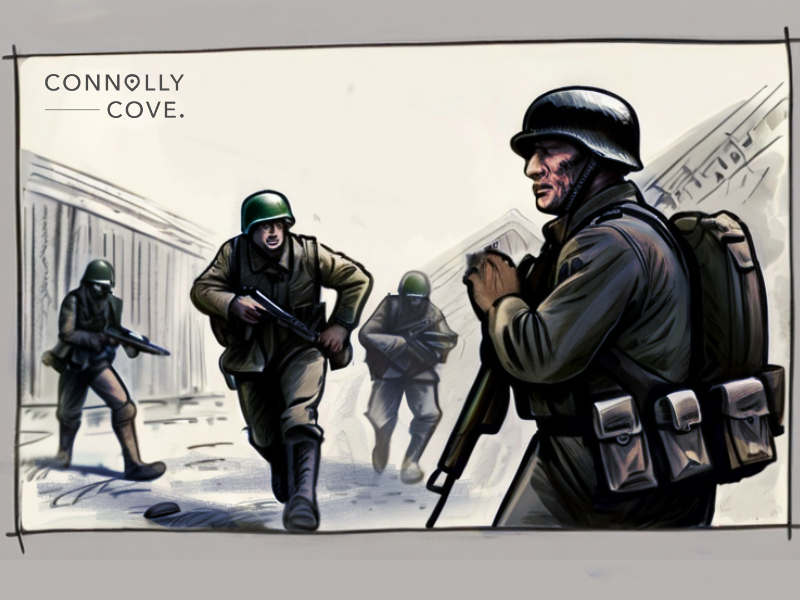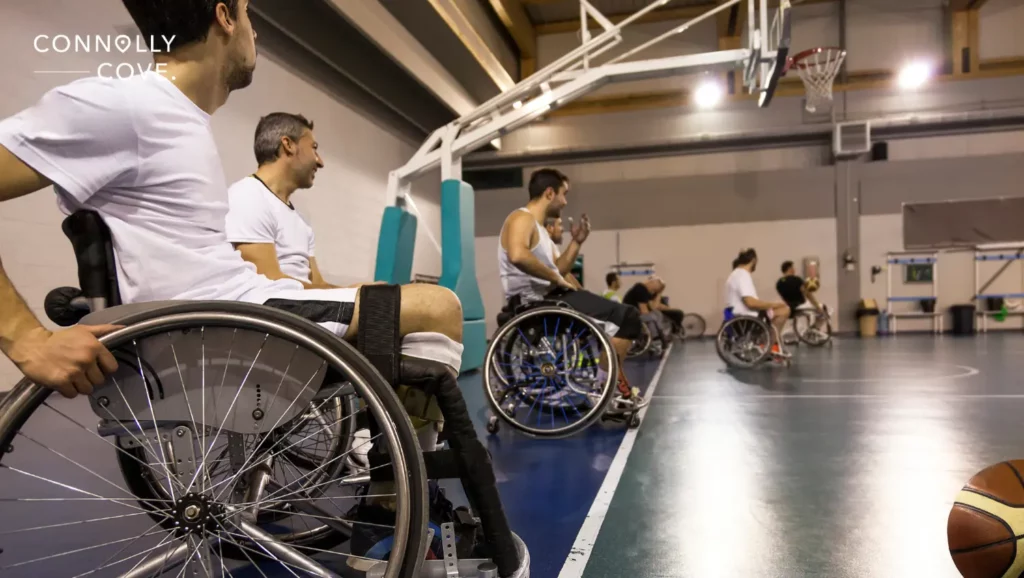The Legacy of Ludwig Guttmann: Father of the Paralympic Games

Updated On: April 24, 2024 by Raghda Elsabbagh

“If I ever did one good thing in my medical career, it was to introduce sport into the treatment and rehabilitation program of spinal cord sufferers and other severely disabled.”
— Ludwig Guttmann
Have you ever wondered who the spark that ignited the Paralympic Games was? We, too, felt a tickle of curiosity about this captivating slice of history and, thus, took it upon ourselves to delve into the life and times of Ludwig Guttmann —founder, medical pioneer and iconic figure within the sphere of disability sports development.
This article promises to guide you through Ludwig Guttmann’s remarkable adventure, from his hair-raising escape from Nazi Germany to nurturing one of the world’s most esteemed sporting events for disabled athletes. It’s an enthralling story, wouldn’t you agree? Well then, shall we crack on?
Table of Contents
Key Takeaways
- Ludwig Guttmann, a Jewish doctor from Germany, escaped Nazi persecution and found refuge in Britain during World War II.
- In Britain, Guttmann established himself as a neurosurgeon and organised the first competition for wheelchair athletes called the Stoke Mandeville Games, which later evolved into the Paralympic Games.
- Guttmann’s vision and dedication created an international platform for disabled athletes to showcase their abilities and inspired rehabilitation, healthcare, and technology advancements for individuals with disabilities.
Early Life of Ludwig Guttmann
Ludwig Guttmann was born in the quaint town of Tost, Germany, on 3 July 1899. Growing up in a middle-class Jewish family, young Ludwig displayed a curious mind and a compassionate heart from an early age. His parents, devout believers in education, instilled in him the values of resilience and empathy, setting the stage for a remarkable life ahead.
As a teenager, Guttmann witnessed the turmoil of World War I and its profound impact on society. This tumultuous period kindled a desire within him to contribute meaningfully to the world, propelling him toward a path where medicine would become the instrument of his benevolence.
Academic Journey and Medical Training of Ludwig Guttmann
Guttmann’s academic journey was nothing short of extraordinary. After completing his secondary education, he enrolled at the University of Breslau to pursue a degree in medicine. Here, he developed a fascination for neurology, a branch of medicine that would become the focal point of his groundbreaking career. His pursuit of excellence led him to various medical institutions across Germany, where he sharpened his skills and understood the human nervous system.
Experiences that Shaped Guttmann’s Medical Philosophy
Guttmann’s medical philosophy was not merely shaped within the walls of lecture halls and laboratories; the crucible of real-life experiences and profound influences moulded it. His encounters with patients, particularly those suffering from spinal cord injuries, deeply impacted him. Witnessing their struggles ignited a passion within Guttmann to redefine the approach to rehabilitation.
During his formative years, Guttmann also found inspiration in the work of pioneering neurologists and physicians who dared to challenge the conventional norms of their time. Their courage and innovative thinking influenced Guttmann’s belief that medicine should extend beyond the mere treatment of symptoms, embracing a holistic approach that addresses the physical, emotional, and social aspects of the patient’s well-being.
Fleeing Nazi Germany and Settling in Britain
In the shadow of Nazi Germany’s ominous rise and the atrocities of the Second World War, Ludwig Guttmann found himself at a crossroads. As a Jewish doctor, his escape from persecution under the regime of Adolf Hitler became a matter of survival. Fueled by resilience and determination, Guttmann embarked on a journey that would take him far from the oppressive regime.

In 1939, Guttmann fled to England with his family, seeking refuge in the United Kingdom. This land would become his sanctuary for transformative medical practices. The decision to leave his homeland was undoubtedly difficult, but it laid the foundation for a new chapter. It was in Britain that he established himself as a neurosurgeon and medical pioneer, laying the foundation for what would eventually become the Paralympic Games.
Establishment of the National Spinal Injuries Centre at Stoke Mandeville Hospital
The quaint town of Aylesbury in Buckinghamshire became a hub of medical innovation when Ludwig Guttmann assumed the director role at Stoke Mandeville Hospital. Here, against the backdrop of World War II, Guttmann’s vision for spinal cord injury care took tangible form.
In 1944, Guttmann founded the National Spinal Injuries Centre within the premises of Stoke Mandeville Hospital. This centre was a haven of hope, pioneering new methods beyond conventional medical norms. Guttmann’s tireless efforts began to redefine the possibilities for those affected by spinal cord injuries, marking the inception of a revolution in rehabilitation.
Guttmann’s Vision for Comprehensive Spinal Cord Injury Care

Guttmann’s vision extended far beyond the confines of traditional medicine. He envisioned a holistic approach—one that considered not only the physical aspects of recovery but also the emotional and social well-being of the patients. In his eyes, rehabilitation was not just about restoring bodily functions; it was about improving their quality of life and empowering them.
As a neurosurgeon, Guttmann saw the potential for sports and physical activities as a means of rehabilitation for individuals with spinal injuries. His vision laid the groundwork for what would later evolve into the Paralympic Games.
“From today, all spinal patients are my responsibility.”
— Ludwig Guttmann
Introduction of Sports as a Rehabilitation Tool
In the corridors of Stoke Mandeville Hospital, where hope and determination filled the air, Ludwig Guttmann introduced a game-changer—literally. Recognising the transformative power of sports in the rehabilitation process, Guttmann initiated the integration of athletic activities into the treatment plans for individuals with spinal cord injuries.
What began as a therapeutic tool soon blossomed into something much more profound, as sports symbolised resilience and a pathway to reclaiming lives. Ludwig Guttmann’s vision was a living, breathing reality that transformed the lives of countless individuals.
The notion that wheelchair sports, archery, and other physical activities could aid recovery was groundbreaking. Beyond the physical strength, these activities offered a psychological boost, instilling a sense of accomplishment and camaraderie among patients.
Little did Guttmann know that his innovative approach to spinal cord injury care would resonate globally, shaping the future of rehabilitation and laying the groundwork for a global celebration of the human spirit—the Paralympic Games.
The Birth of the Paralympic Games: Organisation of the Stoke Mandeville Games

In 1948, the spirit of competition permeated the air at Stoke Mandeville Hospital. Guttmann organised the first competition for athletes in wheelchairs, called the Stoke Mandeville Games. These were no ordinary games; they were a testament to the indomitable spirit of individuals overcoming physical challenges. Wheelchair archery, wheelchair basketball, and wheelchair polo took centre stage, captivating both participants and spectators.
The Stoke Mandeville Games quickly gained momentum, attracting participants from across the globe. This wasn’t just a competition; it was about breaking barriers and showcasing the remarkable capabilities of individuals with disabilities. Guttmann’s vision of using sports as a catalyst for rehabilitation had evolved into a full-fledged international event, setting the stage for what would become the Paralympic Games.
Evolution into the Paralympic Games and Its Global Impact
The ripple effect from Stoke Mandeville reached far beyond its hospital walls. Guttmann’s innovative approach and dedication to patient care laid the foundation for an international movement promoting disability inclusion in sports, the Paralympic Movement.
In 1960, Rome hosted the first official Paralympic Games. This monumental event signalled the global recognition of the profound abilities and achievements of athletes with disabilities. What started as a modest gathering in a hospital courtyard had transformed into a spectacular showcase of athletic prowess, determination, and inclusivity.
Guttman promoted equality and inclusion through the Paralympics, creating an international platform where disabled athletes could compete at the highest level and be recognised for their achievements.
The Paralympic Games became a platform for rewriting the narrative surrounding disability. It was about pushing boundaries and celebrating diversity. The impact spread like wildfire, influencing attitudes towards disability on a global scale. The Games became a beacon of inspiration, fostering a sense of unity and proving that the human spirit knows no bounds.
Thanks to Ludwig Guttmann’s vision and determination, disabled athletes worldwide now have a platform to showcase their abilities and inspire others. Since then, he earned the well-deserved “Father of the Paralympics title.”
The Paralympic Games continued to evolve in the following decades, gaining prominence and recognition. The once-radical idea of integrating sports and rehabilitation had become a global movement, breaking down barriers and leaving an enduring legacy of inclusivity and empowerment.
Medical Innovations and Contributions
Ludwig Guttmann was no ordinary doctor; he was a leader who redefined the landscape of spinal cord injury treatment.
Development of the Interdisciplinary Approach to Spinal Cord Injury Treatment
One of his groundbreaking contributions was introducing an interdisciplinary approach—bringing together specialists from various fields to address the physical aspects of injuries and the emotional and social dimensions. It was a paradigm shift, recognising that a comprehensive treatment plan was vital to truly restoring the lives of those affected.
Psychologists, physiotherapists, and social workers collaborated to ensure that rehabilitation encompassed the entire spectrum of a person’s well-being. Guttmann’s vision laid the foundation for modern spinal cord injury care, emphasising the importance of teamwork in the pursuit of recovery.
Guttmann’s Pioneering Work in Neurorehabilitation and Wheelchair Design

Guttmann wasn’t content with the status quo; he was a relentless innovator. His pioneering work in neurorehabilitation marked a departure from traditional methods. His efforts went beyond sports as he advocated for better patient care and advancements in medical technology for athletes with disabilities.
Guttmann embraced cutting-edge techniques, including early mobilisation and specific exercises tailored to individual needs. His emphasis on functional independence became a guiding principle in the rehabilitation process.
But Guttmann didn’t stop there. Recognising the need for customised equipment, he delved into wheelchair design, creating chairs that catered to the unique requirements of individuals with spinal cord injuries. His work significantly improved prosthetics, assistive devices, and adaptive equipment, greatly benefiting individuals with disabilities.
Guttmann wasn’t just treating patients; he was revolutionising the very approach to spinal cord injury care. His interdisciplinary model, coupled with the introduction of wheelchair sports and advancements in neurorehabilitation, reshaped the narrative around disability. Guttmann’s legacy is not confined to textbooks; it echoes in the lives of those who, thanks to his innovations, not only healed but discovered the profound joy of rediscovering their capabilities.
Not only did Ludwig Guttmann’s vision change the lives of those at Stoke Mandeville, but it also altered the course of history, giving rise to the extraordinary celebration of ability that we now know as the Paralympic Games.
Guttmann’s pioneering work in creating these games made a lasting impact on disability sports and the inclusion of people with disabilities in international sporting events. His legacy extends beyond sports, significantly contributing to medicine and disability advocacy. Despite facing many challenges throughout his life, Guttmann’s efforts continue to inspire and empower athletes with disabilities worldwide.






